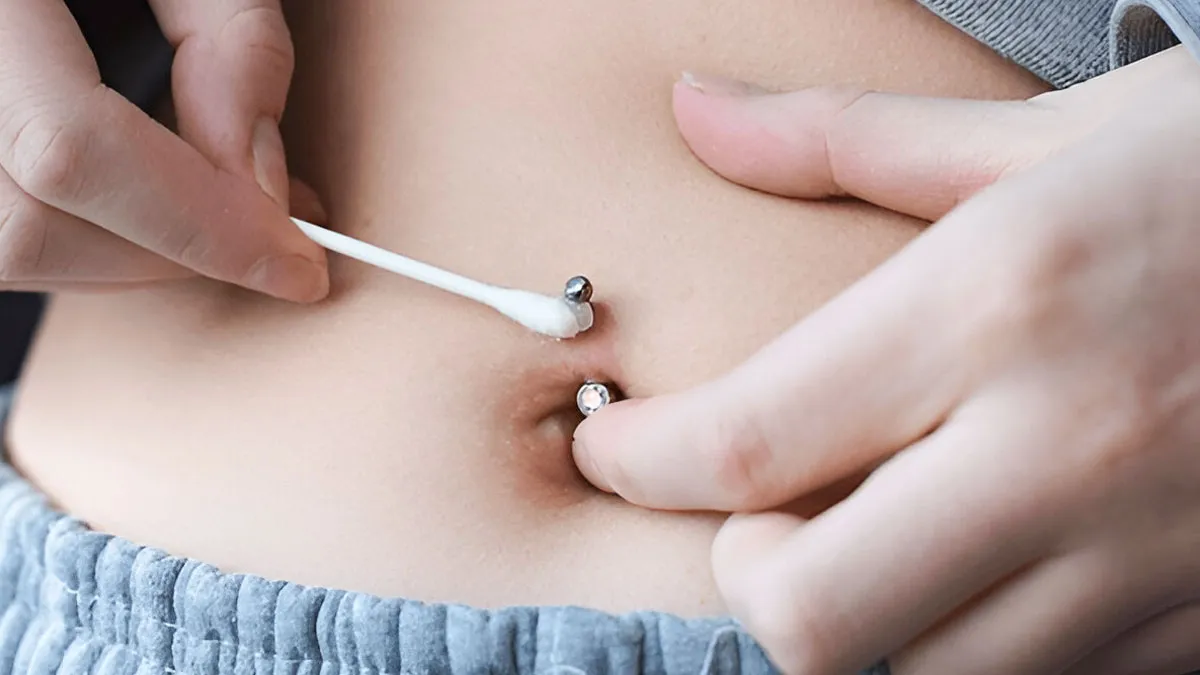
The belly button, also known as the umbilicus, is the area that helps spot where the umbilical cord was attached during foetal development. This cord delivers essential nutrients and oxygen from the mother to the baby and removes waste. However, it doesn't really have any other purpose after birth once the cord is cut and the wound heals.
Table of Content:-
But it is important to keep the belly button clean at all times, regardless of whether or not it has any functions. Besides preventing bad odour, keeping the area clean helps reduce the risk of infections and potential health issues in the future. A doctor shares everything you need to know about the same.
Also Read: Can Putting Castor Oil In Belly Button Do Any Good? Find Out Here!
Why Is Your Belly Button Prone To Infections?

According to Dr Prashant Sinha, Head of Emergency, PSRI Hospital, Delhi, the belly button is a small, enclosed area of the body that often stays warm and moist. These conditions make it an ideal place for bacteria and fungi to thrive.
"Because the belly button is a recessed part of the skin, sweat, oil, soap residue, and dead skin cells can accumulate there without being noticed. Over time, this buildup becomes food for microorganisms," says Dr Sinha, and if it isn’t cleaned properly, the balance between normal skin bacteria and harmful germs is disturbed, leading to infections.
Also known as omphalitis, belly button infection is usually uncommon beyond the neonatal age, according to StatPearls Publishing. Symptoms typically begin at an average age of 3 days.
Common Types Of Belly Button Infection

The most common belly button infections are bacterial and fungal.
Dr Sinha shares, “Bacterial infections are often caused by Staphylococcus or Streptococcus species, which can enter through small cuts, irritation, or poor hygiene.”
These usually cause:
- Redness
- Pain
- Swelling
- Plus
Fungal infections, commonly due to Candida (yeast), develop in moist environments and lead to:
- Itching
- Redness
- A whitish or cheesy discharge
In some cases, especially in people with diabetes, more serious infections can develop if the condition is ignored.
How To Spot Early Signs Of Belly Button Infection
Early warning signs of belly button infection include:
- Redness around the belly button
- Tenderness
- Mild swelling
- An unusual smell
- Clear or yellow discharge
- Persistent itching
Dr Sinha adds, “If the infection progresses, symptoms can become more severe with increased pain, thick pus, bleeding, or even fever. Catching these signs early makes treatment simpler and prevents complications. Ignoring them can allow the infection to spread deeper into the skin.”
Also Read: Navel Discharge: A Sign Of Infection?
Factors That Increase Your Risk Of Belly Button Infection

According to the doctor, poor hygiene is a major cause of belly button infection, but it’s not the only one. Certain medical conditions can increase the risk of belly button infections. For example:
- Diabetes makes it harder for the body to fight infections, allowing bacteria and fungi to grow more easily.
- People who are overweight may also experience deeper folds around the belly button that trap moisture.
- Skin conditions such as eczema or psoriasis can break down the protective barrier, making infection more likely.
- Even recent surgeries, piercings, or injuries near the navel can raise the risk.
How To Safely Clean Your Belly Button
The safest way to care for your belly button is gentle but regular cleaning. Some of the strategies include:
- Simply washing with warm water and mild soap while bathing
- Rinsing thoroughly to remove any soap residue, as leftover soap can cause irritation
- Always dry the area carefully after a bath, because moisture encourages fungal growth.
- Using a clean cotton swab dipped in warm water if you have a deep navel
- Avoiding harsh scrubbing
For those with piercings, it’s important to follow proper aftercare instructions and avoid touching with unwashed hands. If you notice persistent redness, swelling, or discharge, consult a doctor instead of trying home remedies.
Conclusion
Belly button infections are common and need proper care and treatment. If left untreated, it can cause complications. Spotting early signs and taking proper hygiene measures can not only manage the infection but also prevent future episodes. Remember, if the symptoms are persistent and do not clear away after treatment, consulting a doctor may prove helpful.
Also watch this video
How we keep this article up to date:
We work with experts and keep a close eye on the latest in health and wellness. Whenever there is a new research or helpful information, we update our articles with accurate and useful advice.
Current Version
Sep 12, 2025 15:39 IST
Published By : Tenzin Chodon